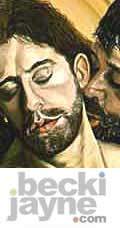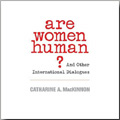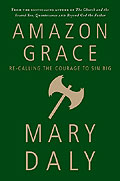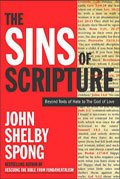The encroachment upon America's free press to be free, a tenet of our democracy, won't stop until the villagers stop it. But will we? Who's paying attention and will they care? The news media has undermined its usefulness to people, once the public's watchdog, now in some quarters a propaganda machine and in others, the manufacturers of Ta-boom! Crack! swirling headlines that elevate the banal to sensational heights. I doubt the public will feel little sympathy for "the most significant story of the day," that Big Brother Bush, Inc. has escalated its warfare on America's free press, what little of it that's left.
Earlier yesterday I posted a piece on the government tracking of ABC News Brian Ross and Richard Esposito phone calls.
John Nichols at The Nation provided a midnight update:
An entry posted Monday evening on "The Blotter," an ABC News blog, by investigative reporters Brian Ross and Richard Esposito, reports that, "The FBI acknowledged late Monday that it is increasingly seeking reporters' phone records in leak investigations. 'It used to be very hard and complicated to do this, but it no longer is in the Bush administration,' said a senior federal official."
The report by Ross and Esposito, respected journalists with solid sources in the law enforcement community, continued:
FBI officials did not deny that phone records of ABC News, the New York Times and the Washington Post had been sought as part of a investigation of leaks at the CIA.In a statement, the FBI press office said its leak investigations begin with the examination of government phone records."The FBI will take logical investigative steps to determine if a criminal act was committed by a government employee by the unauthorized release of classified information," the statement said.Officials say that means that phone records of reporters will be sought if government records are not sufficient.Officials say the FBI makes extensive use of a new provision of the Patriot Act which allows agents to seek information with what are called National Security Letters (NSL).The NSLs are a version of an administrative subpoena and are not signed by a judge. Under the law, a phone company receiving a NSL for phone records must provide them and may not divulge to the customer that the records have been given to the government.
Monday evening's report from Ross and Esposito followed their revelation earlier in the day that they had been told by "a senior federal law enforcement official" that the government is monitoring phone calls they are other journalists are making in order to identify confidential sources.
If these reports are accurate -- and Ross and Esposito have a solid record of getting things right -- it does not require much of an imagination to determine what has transpired.
Any serious discussion will turn, for reasons hardly unreasonable considering recent revelations regarding this White House's disregard for the rule of law, to the question of whether a frustrated Bush-Cheney administration is seeking the phone records of journalists not merely to identify leakers but to thwart the sort of whistleblowing that has embarrassed the president and vice president by linking them to warrantless wiretaping, rendition of prisoners, the defense of torture, the distribution of classified information in order to punish political critics and other abuses of power.
If the administration has begun reviewing the telephone calls of reporters not to catch lawbreakers but to prevent revelations of its own lawlessness, then this White House has strayed onto dangerous political turf.
To be sure, the Bush-Cheney administration would not be the first to go after journalists in order to protect itself from challenges to its authority. President John Adams actually jailed journalistic critics in the early days of the Republic, provoking the crisis that would make him the first president to be defeated for reelection. President Richard Nixon produced an "enemies list" that included the names of prominent journalists such as Daniel Schorr.
This could mark a turning point for the usually pliant Washington press corps, however.
White House reporters are by any measure a docile lot, and there is no question that the Bush-Cheney administration has benefited tremendously from the frequently stenographic reporting of even its most outlandish spin by unquestioning national correspondents -- two words: "Judith Miller." But it is difficult to imagine, especially with the approval ratings for the president and vice president dipping to depths previously explore[d] by Richard Nixon and Spiro Agnew in their darkest days, that Washington reporters will take kindly to being spied on by an administration bent to shutting up confidential sources.
To be sure, the members of the White House press corps should not need a threat to their own privacy -- not to mention their most vital sources of honest information -- to be inspired to practice their craft as the founders intended. But the track record of the past several years indicates that a jolt of some kind was needed. Let's just hope that the reporters who cover the Bush-Cheney White House will prove to be self-serving enough to want to protect the whistleblowers without whom journalists cannot begin to tell the full story of what this administration is doing in our name but without our informed consent.Big Brother Bush, Inc. like the Frankenstein monster is loose, stomping around in the town square and scaring the villagers. Some hysterical villagers helped animate the monster and now add their shrieks to the plunder. Let's hope heroes will rise up and destroy the monster before they are strangled and tossed aside like a used newspaper.
Pick up your torches, villagers, and burn the monster in a blaze of light.


















|